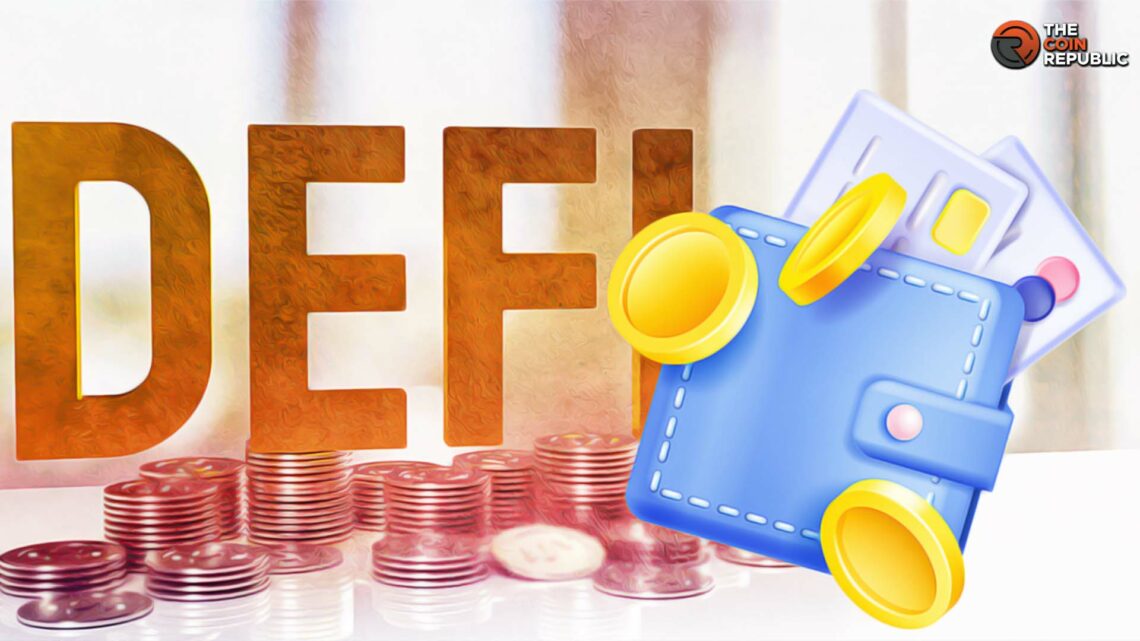- 1 A defi wallet is the basic requirement for accessing many defi-based solutions.
- 2 Before using them, it is important to know all their aspects in terms of security and functionality.
The birth of the first cryptocurrency was also a dawn of decentralized finance. However, it took a while for the latter to rise to prominence. That’s because there wasn’t a proper ecosystem to support its market. Now, the DeFi space is emerging and some tools underpin its adaption. When we talk about its tools, the most important one is the DeFi wallet.
This decentralized application allows people to easily store and manage their crypto assets. Moreover, its growing usage indicates that the world is readying itself for the DeFi era. As per Dune Analytics, there are 40 million users of decentralized finance now. Even though crypto isn’t a legal tender or a mainstream means of exchange, people are preparing for it.
They have realized the potential of DeFi markets. Therefore, users are familiarizing themselves with DeFi wallets. So, let’s get into it and explore all the facts about DeFi wallets.
Understanding DeFi Wallets
DeFi wallets are non-custodial software programs that give their users total ownership of digital assets. Moreover, they allow users to store, buy, and sell various types of digital assets. The asset holders can also use these wallets to gain passive income. They can engage in activities like staking or lending on DeFi protocols using this tool.
A DeFi wallet can be used on devices like computers or smartphones easily. To secure exclusive access to users, these wallets generate private keys and seed phrases. Using these credentials, users can ensure that no one can get access to their assets.
Also, new users may hear about custodial wallets too. These wallets also support digital assets and smart contracts, but they’re managed centrally by service providers. They might be easier to use and more suitable for beginners. However, security and anonymity are the preference, and a non-custodial variant becomes a better option.
The DeFi wallets secure all the information in an encrypted manner. As a result, they’re considered much safer than their centralized counterparts. However, it doesn’t mean that the DeFi is fully invulnerable to cyber-attacks. Crypto users must know that blockchain-chain protocols have been compromised multiple times.
March’s Euler hack and Atomic Wallet exploit are the most recent examples of that. As per a report by Beosin, assets over $650 million were stolen from the DeFi ecosystem. Thus, users cannot consider it a foolproof solution against cyber threats. Having said that, knowledge will certainly help them make better choices.
Two Types of DeFi Wallets
Primarily, two types of DeFi wallets fulfill distinct purposes of users.
Software Wallets– These wallets work as a desktop application, mobile app, or browser extension on users’ devices. They remain connected to the internet and let users manage them. The users of such wallets can buy, sell, or trade their assets on this variant of wallet.
Hardware Wallets– These wallets are solely used for storage purposes. They remain offline ruling out any chances of asset theft. Some popular choices of hardware wallets are Trezor and Ledger. While they sound bland in nature, they could be more interesting in the future. Advancements are happening on this front and hardware wallets can become handier and more dynamic soon.
Defi Wallet Mechanism
Besides security, DeFi wallets also emphasize interoperability. For instance, Metmask, one of the leading wallets supports multiple blockchains. It is compatible with Ethereum, BNB chain, Avalanche, Polygon, Arbitrum, and many other protocols. Newbies should know that DeFi wallets are also known as Web3 wallets.
Users can operate these wallets just like any other app on their device. They come with an easy interface that makes the management of assets easier than ever. Users can even access other services using these wallets. They can check the balance, buy, sell, and avail of other solutions too.
Also, in case the users lose the assets due to some reason, they can retrieve them. It is made possible with the help of seed or recovery phrases. To perform any transaction on a DeFi wallet, users need some of its native crypto. For instance, if one’s using an Ethereum-based wallet, they’ll need some ETH.
These assets are used as gas, paid as fees to miners or validators
Reasons To Pick A DeFi Wallets
Self-Custody– Users become the sole owners of their assets without sharing the access with anyone.
Enhanced Security– Though not foolproof, non-custodial defi wallets amp up the security to a great extent.
dApp Access– By using a DeFi wallet, users get access to a wide range of decentralized applications.
Interoperability– DeFi wallets let users deal with a barrage of digital assets without any issues.
Upshot
A DeFi wallet is definitely the key to unlocking all that decentralization offers. Furthermore, it is evolving and is only going to get better with time. Therefore, they will offer better privacy and control in the years to come. Despite that, it is recommended for the users to study defi wallets before choosing one.

Adarsh Singh is a true connoisseur of Defi and Blockchain technologies, who left his job at a “Big 4” multinational finance firm to pursue crypto and NFT trading full-time. He has a strong background in finance, with MBA from a prestigious B-school. He delves deep into these innovative fields, unraveling their intricacies. Uncovering hidden gems, be it coins, tokens or NFTs, is his expertise. NFTs drive deep interest for him, and his creative analysis of NFTs opens up engaging narratives. He strives to bring decentralized digital assets accessible to the masses.


 Home
Home News
News










